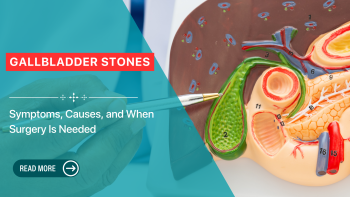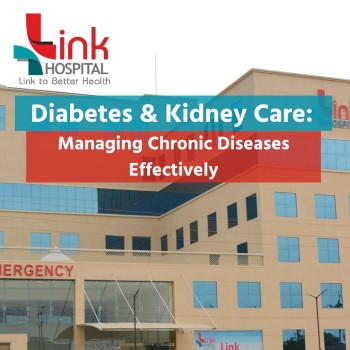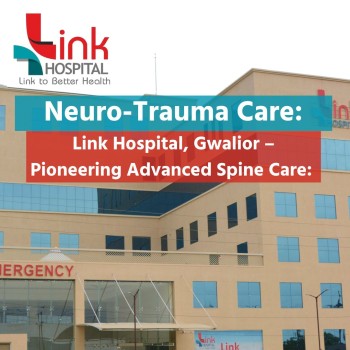Stress has become a constant
companion in today’s fast-paced world. While occasional stress is a normal part
of life, chronic stress can severely affect your health, particularly your
heart. Understanding the link between stress and heart health is critical to
preventing long-term cardiovascular issues.
In this blog, we will explore how stress
impacts your heart, the risks associated with it, and proven strategies to
manage stress for a healthier life.
How Stress Affects Your Heart
When you're stressed, your body responds
with a cascade of physical reactions, often referred to as the "fight or
flight" response. While this reaction can help you deal with immediate
threats, prolonged or chronic stress causes ongoing physiological strain,
particularly on the heart.
1. Elevated Blood Pressure
Stress can cause temporary spikes in blood
pressure. Over time, constant stress-induced increases in blood pressure can
lead to damage to your arteries, increasing the risk of heart disease, heart
attacks, and strokes.
2. Increased Heart Rate
In response to stress, the body releases
adrenaline, which raises your heart rate. While this is necessary in short
bursts, a consistently elevated heart rate can strain the heart, eventually
leading to conditions such as arrhythmias or heart failure.
3. Increased Inflammation
Chronic stress leads to elevated levels of
cortisol, a hormone linked to inflammation in the body. This inflammation can
cause plaque buildup in your arteries, contributing to coronary artery disease
and increasing the risk of a heart attack.
4. Unhealthy Lifestyle Choices
Many people turn to unhealthy habits when dealing with stress, such as smoking, overeating, or excessive alcohol consumption. These habits can have a cumulative effect on heart health, accelerating the progression of cardiovascular disease.
5. Emotional Distress and Heart Health
Chronic stress can lead to anxiety and
depression, both of which are associated with an increased risk of
cardiovascular disease. Emotional strain can also contribute to the development
of unhealthy coping mechanisms, further exacerbating heart risks.
Managing Stress for a Healthier Heart
While stress is inevitable, managing it
effectively is key to safeguarding your heart. Here are scientifically-backed
strategies to help reduce stress and improve your cardiovascular health:
1. Regular Physical Activity
Exercise is one of the most effective ways
to combat stress. Engaging in moderate-intensity activities such as walking,
swimming, or cycling for at least 30 minutes daily can help reduce stress
hormones, improve mood, and promote heart health.
2. Mindfulness and Meditation
Mindfulness practices, including meditation
and deep breathing exercises, can significantly lower stress levels. By calming
the mind and body, these techniques reduce heart rate, lower blood pressure,
and alleviate the physical effects of stress on the heart.
3. Balanced Nutrition
A nutritious, heart-friendly diet plays a
crucial role in stress management. Foods rich in omega-3 fatty acids,
antioxidants, and fibre—such as fish, leafy greens, and whole grains—help
regulate cortisol levels and reduce inflammation, which benefits your heart.
4. Quality Sleep
Sleep is vital for reducing stress and
maintaining heart health. Poor sleep exacerbates stress and increases the risk
of heart disease. Aim for 7-9 hours of restful sleep each night, and practice
good sleep hygiene by sticking to a consistent sleep schedule and creating a
calming bedtime routine.
5. Social Support
Strong social connections are key to
managing stress. Whether it's family, friends, or a support group, maintaining
positive relationships helps buffer the effects of stress. Sharing your
concerns and seeking support during challenging times can provide emotional
relief.
6. Professional Counseling
Sometimes, managing stress requires more
than lifestyle changes. Seeking professional help from a therapist or
counsellor can equip you with the tools to navigate chronic stress, anxiety, or
depression, all of which are important for maintaining heart health.
Link Hospital: Your Health Experts
At Link
Hospital, Gwalior's premier multispecialty hospital, we recognize the
critical connection between stress and heart health. Our expert team, led by Senior Consultant Cardiologist Dr. Dhara Singh, DM-Cardiology (AIIMS, New
Delhi), specializes in advanced cardiac care and stress management
strategies tailored to meet individual needs.
Link Hospital provides state-of-the-art
diagnostic tools and a comprehensive approach to cardiovascular care. Whether
you’re dealing with hypertension, chronic stress, or need heart health
monitoring, our dedicated team ensures you receive the highest standard of
care.
Doctor
Dhara Singh brings years of expertise in cardiology, offering personalized
consultations to help patients manage stress and reduce their cardiovascular
risk. At Link Hospital, we prioritize preventive care, ensuring that our
patients understand the critical role of stress management in maintaining a
healthy heart.
Conclusion
Stress is unavoidable, but chronic stress
doesn’t have to dictate the state of your heart. By adopting effective stress
management techniques—regular exercise, mindful relaxation, a balanced diet,
and professional support—you can significantly lower your risk of heart
disease.
At Link
Hospital, Gwalior, we are committed to helping you protect your heart. With
the guidance of Dr Dhara Singh
and our specialized care team, we offer a proactive approach to heart health,
ensuring you live a stress-free, heart-healthy life.
For expert care and personalized solutions,
visit Link Hospital, the best
multispecialist hospital in Gwalior.











